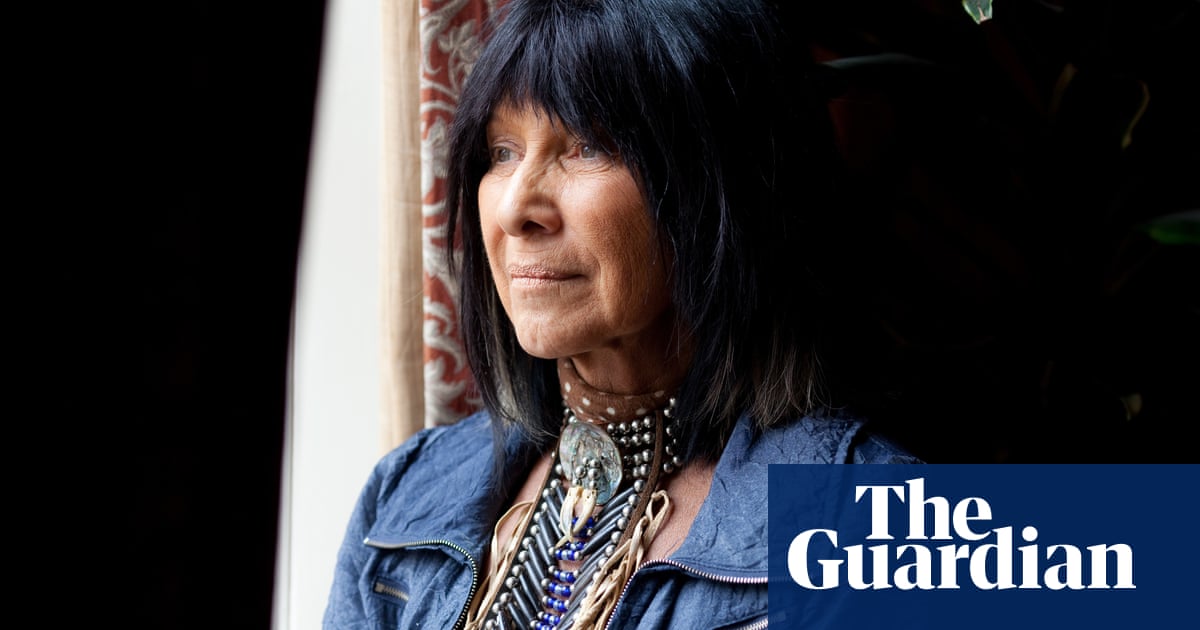
Buffy Sainte-Marie, a folk singer and advocate for social justice, has refuted claims that she misled the public about her Native American heritage. This comes after a Canadian documentary raised concerns about inconsistencies in her story about her Cree background.
Last Friday, the investigative branch of the Canadian Broadcasting Corporation, known as the Fifth Estate, released a report about the singer’s heritage. The report claimed that her personal history contains numerous discrepancies and inaccuracies within a larger narrative.
The contentious report released by the national media outlet follows a series of notable accusations of individuals falsely claiming Indigenous heritage, sparking larger concerns about the misuse of Indigenous identity.
The website for Sainte-Marie refers to her as a “Cree musician” and states that she was born in 1941 on the Piapot First Nation reserve in Saskatchewan. It is believed that she was taken from her biological parents as an infant and raised by a white family in the United States. The singer has stated that her birth records were lost in a hospital fire.
According to the CBC, after conducting interviews with Sainte-Marie’s family and examining a birth certificate, it appears that there is proof that she was born in Stoneham, Massachusetts and does not have any Indigenous heritage.
According to Heidi St. Marie, the daughter of Sainte-Marie’s older brother Alan, her birthplace is not Canada but the United States. She also believes that Sainte-Marie is neither Indigenous nor Native American.
Prior to the report, Sainte-Marie issued a statement on Thursday expressing that the accusations were “extremely painful”.
“I have constantly faced difficulty in addressing inquiries regarding my identity,” she stated. “After conducting research, it became evident that I am unsure of my origins and the identities of my biological parents, and I will never have the answers.”
In a recent interview with the Guardian, 82-year-old Sainte-Marie acknowledged the challenge of understanding her past.
“As children who were adopted, we are not even aware of our birthday,” she expressed. “Our entire lives are spent questioning things that we cannot provide answers to.”
Sainte-Marie informed the press that she was eventually able to reconnect with her family at the Piapot First Nation and was taken in by the Piapot family. She stated to the Boston Herald, “My Cree name is Piyasees Kanikamut, which translates to ‘Singing Bird’. I am now an acknowledged member of the reservation.”
On Thursday, the Piapot family expressed that inquiries about Sainte-Marie’s lineage were “painful, uninformed, oppressive – and discriminatory.”
Debra and Ntawnis Piapot released a statement asserting that their family and community hold the ultimate authority in determining membership, regardless of the opinions or actions of Canada, its governments, the Indian Act, institutions, media, or any individual.
“Buffy is a cherished member of our family, as we chose her and she chose us. Our family is made up of individuals from the Piapot First Nation, which holds a significant meaning to us beyond any official documents or records of colonization.”
Sainte-Marie, a Grammy award-winning artist, recently announced her retirement from live shows due to health concerns. She has been a strong supporter of Indigenous communities and has played a crucial role in promoting social justice causes.
However, recent concerns have arisen about her heritage, following a series of high-profile cases involving individuals falsely claiming Indigenous identity. In a similar vein, Mary-Ellen Turpel Lafond, a former judge with a long history of advocating for Indigenous rights, was stripped of an award earlier this year after being accused of misrepresenting her ancestry.
In certain cases, individuals known as “pretendians” have utilized fraudulent identities in order to obtain important resources or financial aid designated for Native communities.
During the month of September, the Nunavut Royal Canadian Mounted Police (RCMP) pressed charges against three women for committing fraud by falsely claiming Inuit status in order to receive scholarships reserved for Inuit organizations. The accused, twin sisters Amira and Nadya Gill, are accused of falsely identifying as Inuit to gain access to the funds.
Before the CBC report, well-known Indigenous individuals raised concerns about the broadcaster’s choice to investigate Sainte-Marie’s genealogy. This highlights the complexity of her legacy as a revered artist and influential figure.
Writer Robert Jago questioned the CBC’s decision to publish the report, suggesting Sainte-Marie’s case didn’t appear to reach the threshold for publicly investigating “pretendian” cases.
According to Pam Palmater, a professor and head of Indigenous governance at Toronto Metropolitan University, the recent revelations have caused a rift among Indigenous peoples. Some feel betrayed while others fully support her, but both groups are feeling upset and angered by the story. In light of this, Palmater urges everyone to treat each other with kindness and understanding.
Robyn Michaud, a professor of Indigenous studies at Conestoga College, expressed concern over the targeting of Buffy, who has lived her life as an Indigenous woman and has endured both positive and difficult experiences. She questioned the value of targeting her at this stage in her life and stated, “My heart aches.”
Source: theguardian.com
















